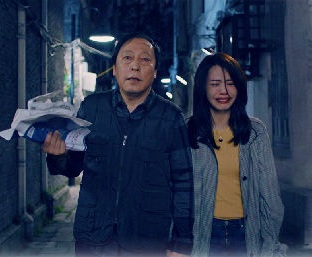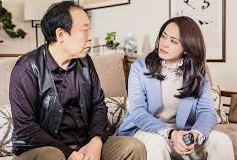- 阅读
- 阅读
- 技巧
- 百科
- 试题
- 文化
- 技能
China
A hit show questions blind obedience to unreasonable parents

Episodes of “All is Well” have been streamed more than 390m times. That exceeds the online viewership of the next most popular television series by 278m. From “The Simpsons” to “Game of Thrones”, dramas about bickering families are common in many countries. But in China, the Communist Party prefers entertainment to be unchallenging. So the questioning of blind attachment to traditional values in “All is Well” is causing a stir. Viewers are transfixed by its rare portrayal of middle-class life, warts and all.
《都挺好》累计播放过量已超过3.9亿次。这比收视率排名第二的电视剧高2.78亿次。从《辛普森一家》到《权力的游戏》,在许多国家,关于家庭矛盾的电视剧很常见。但在中国,当局者更希望娱乐圈不要挑战传统观念。因此,《都挺好》中对盲目顺从的传统价值观的质疑引起了轰动。观众震惊于它对中产阶级的毫无掩盖的罕见写照。
Many Chinese can relate to the Su family’s troubles. The daughter holds a grudge against her father, and especially against her late mother, for having mistreated her while pampering her brothers. As a child she was made to wash her brothers’ clothes. Her parents turned a blind eye when one of her brothers beat her. For many female viewers born before 1979, when China introduced a one-child-per-couple policy (changed to two in 2016), such scenes have brought back painful memories. Some have used social media to share their own tales of sexism within the family.
很多中国人都能理解苏家的困境。女儿对父亲一直有怨,尤其是对于已故的母亲,因为父母在溺爱两个哥哥的同时也虐待了女儿。当她还是孩子的时候就被要求洗哥哥的衣服。二哥打她的时候父母视而不见。中国从1979年开始实行计划生育政策,2016年改为二孩政策。电视剧中的场景勾起了许多1979年之前出生的女性痛苦的回忆。一些人在社交媒体上分享了家庭性别歧视的故事。
But the biggest reaction has been to the drama’s critique of filial piety. Even today, the Confucian principle of unswerving loyalty to one’s parents remains hallowed. Many people say the best measure of adherence to this virtue is whether a son takes good care of his parents in old age. A recent poll by Toutiao, a Chinese news app, found that 54% of elderly people in China get more than half of their expenses covered by their adult children. Partly, no doubt, this is due to a patchy pensions system. But it also reflects a culture of “never saying no to your parents”, says an “All is Well” fan in Beijing.

In the series, however, the widowed father does not attract much sympathy. He throws tantrums and insists that his eldest son buy him a three-bedroom apartment (the son grudgingly does so). Commentators on social media have taken to calling the father a juying (“giant baby”)—a characteristic common among parents in real life, they say. The Su children do their duty, but the audience is supposed to applaud the resentment they express.
参与评论